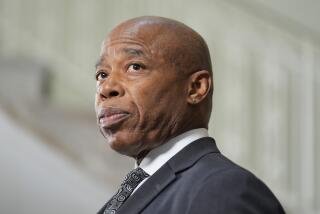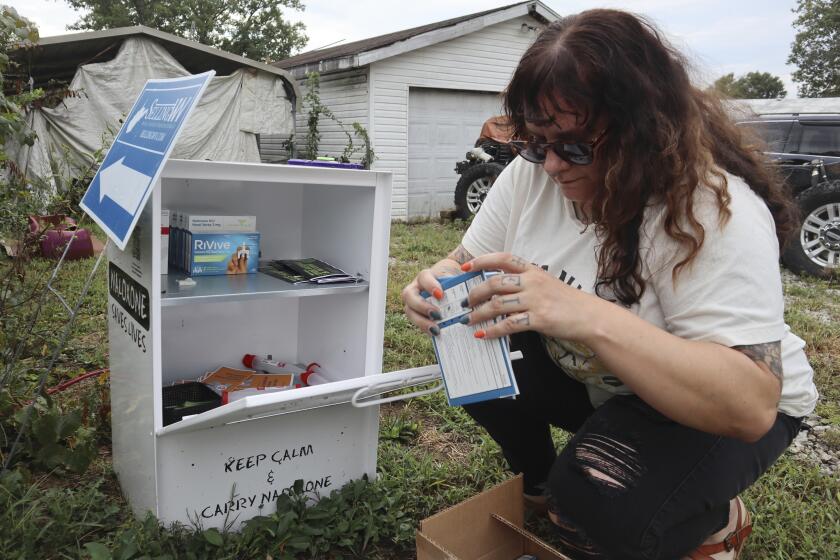Kohl’s Party Battered in 2 State Elections
West German Chancellor Helmut Kohl’s Christian Democrats suffered heavy losses in two crucial state elections on Sunday, according to computer predictions.
In the northern farming state of Schleswig-Holstein, his party, the Christian Democratic Union, lost its position as the biggest party to the Social Democratic Party for the first time in nearly 30 years. But incumbent Christian Democratic state Premier Uwe Barschel retained power with the help of the Free Democrats, who were returned to the state Parliament after a four-year absence.
In the city-state of Bremen, the ruling Social Democrats dealt the Christian Democrats a heavy blow, winning a solid majority of their own as the Christian Democrats dropped 10 percentage points to finish around 22.8%, according to the projections.
The Free Democrats were also voted back into Parliament in Bremen after a four-year absence.
“The outcome in Schleswig-Holstein and Bremen is a bad disappointment, there is no doubt about it,” Kohl said in a comment on television.
‘Dirty Tricks’ Department
Barschel said earlier that he had filed a lawsuit against the news magazine Der Spiegel, which alleged in a report that he sanctioned a “dirty tricks” department to discredit the Social Democrats’ top candidate, Bjoern Engholm.
“I believe that the disgraceful smear campaign, which should not have happened, played a role,” Kohl said, apparently referring to Spiegel’s report.
Kohl also blamed the losses in Schleswig-Holstein on disaffection among the Christian Democrats’ traditional farming vote, angry at Bonn’s agricultural policy in the European Communities.
“In both cases, voter turnout was lower and a number of our voters in the agricultural sector remained at home,” he said.
It was the third setback for Kohl’s party this year, and the fourth boost for Foreign Minister Hans-Dietrich Genscher’s small Free Democratic Party, which has traditionally held the balance of power in West German elections.
Genscher’s persistent campaign for acceptance of the Geneva disarmament proposals was seen as the biggest single factor for his party’s surge.
The Free Democrats made up for the Christian Democrats’ slide in the Jan. 26 general elections, and in April helped Kohl’s party unseat the Social Democrats in the state of Hesse for the first time in 40 years.
More to Read
Sign up for Essential California
The most important California stories and recommendations in your inbox every morning.
You may occasionally receive promotional content from the Los Angeles Times.










